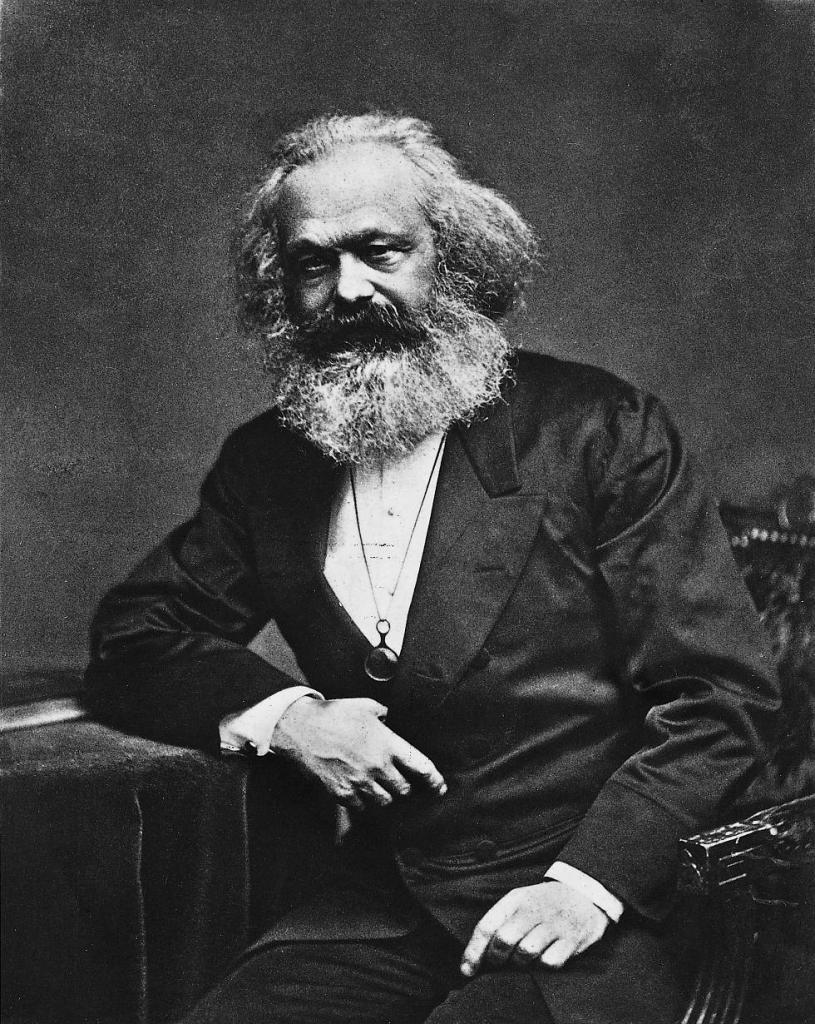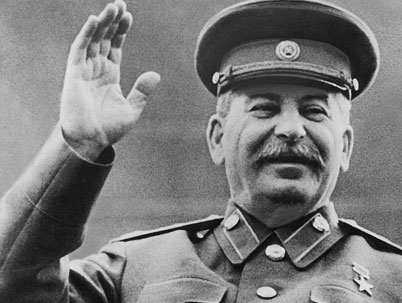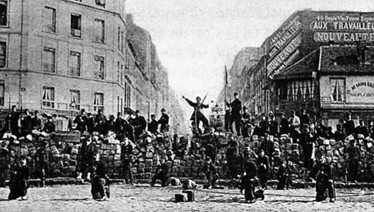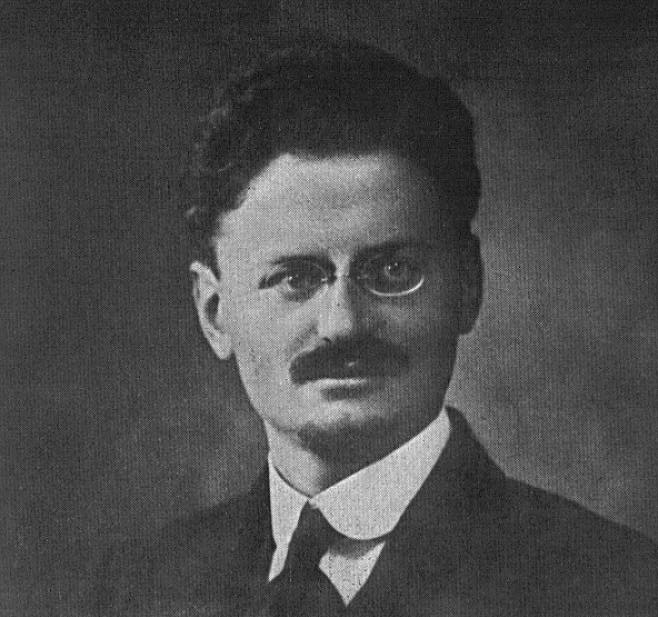by Parson Young
語言:
English
In conjunction with the Taipei Philosophy Book Club, New Bloom presents a new column, ‘Keywords’. ‘Keywords’ will review key terms from critical theory and philosophy as they are relevant to Taiwanese politics.
ONE OF THE most common accusations against Marxism has been that its implementation inevitably leads to an authoritarian government like that of Stalinism or Maoism. Most point to the term “dictatorship of the proletariat,” a term used by Marx himself, as evidence that Marxism itself has theoretical basis in authoritarianism. In reality, this concept has been purposely distorted, misrepresented and taken out of context and analyzed through a bourgeois understanding of human society. These caricatures of the term, and Marxism in general, formed a strong ideological cult in capitalist society today. It is therefore prudent to peel away the layers of lies surrounding the term, and to examine what Marxists actually have to say about establishment of a worker’s state.
“Marx Would Have Been a Dictator Himself”
WE MIGHT BEGIN by examining a very common conventional “wisdom” when it comes to understanding Marxism. We’ve all heard it before: Marx called for a “dictatorship of the proletariat,” meaning that he wants to overthrow the establishment by instigating the underclass to revolt, and take power to rule as “voice” of the people, which really is just his plot to rule. The theory concludes that the way Stalin and Mao’s governments turned out was no accident: it was a faithful following of the Marxist plot to take power by establishing a “some more equal than others” regime on the lofty promise of communism, which is also held to be impossible as a socioeconomic system that just doesn’t work. In Taiwan where two right-wing parties reign supreme, this kind of narrative must be familiar to the Taiwanese people, young and old.
 Karl Marx
Karl Marx
Yet there are several crucial fallacies of this kind of narrative. First, the word “dictatorship” is taken completely out of context. As Marxist theoretician Alan Woods explains, the way we understand the word “dictatorship” which conjures up horrors of Hitler, Stalin, and Mao’s totalitarian regimes, where state terror monitors and suppresses every aspect of the life of the people, as well as crimes committed on a large scale by the government. What many tend to forget, however, is that these kinds of regimes never existed in or before Marx’s time. For Marx, the word “dictator” came from the ancient Roman Republic, where at under extreme circumstances such as war or plagues, an extraordinary magistrate (magistratius extrodinarius) would be nominated by the consuls to command the Citizen’s Army and holds the power to act beyond the jurisdiction of that of a magistrate. When the need for such a post ceases to exist, the dictator would step down accordingly. Similarly, Marx wrote that the nature of this “dictatorship, itself, constitutes no more than a transition to the abolition of all classes and to a classless society,” making the regime a clearly temporary one. [1] This is decidedly different from a totalitarian government of Stalin and Hitler, who in our days embody the word “dictatorship,” which Marx wouldn’t even be able to imagine in his time.
However, an even more important aspect of the term “dictatorship of the proletariat,” is that the true commanding power over society is not assumed by an individual or a small clique, but rather by an entire class. A Marxist analysis does not see individual politicians as the beginning and end of historical progress, but rather place their actions in the larger socio-economic context and productive relations of the time they live in. Individual actors are of course conscious and therefore responsible for their actions, but their decisions and their consequences are reflective of material reality that surrounds them.
 Joseph Stalin
Joseph Stalin
With this view in mind, when Marx spoke of the “Dictatorship of the Proletariat,” essentially elaborating on how he understood the Paris Commune, he meant that the proletariat as a class must take extraordinary command over the entire society to safeguard the task of transforming the existing socio-economic order into one that is not based on struggle between classes. This is not a task that can be simply done by one person’s decree, but through a decisive majority of the working class, voluntarily and cooperatively. None of this in anyway implies the transference of all power into the hands of a single individual, to suggests that the Marx himself aspired to harness political power for himself on the back of workers is childishly cynical, and soporifically simplistic. Unfortunately for us, such a caricature of Marxism has been jointly proliferated by both bourgeois states and Stalinists to us for decades.
Dictatorship of the Bourgeoisie
ANOTHER WAY TO understand Marx’s concept of “Dictatorship of the Proletariat” is to take a look at the society we are living in right now, essentially a Dictatorship of the Bourgeoisie. Though different from the Dictatorship of the Proletariat, which is transitory and temporary, the bourgeois’ extraordinary command over our social, political, and economic system will not end until they are overthrown or when capitalism collapses upon itself. In our global society today, we are taught to accept big capitalists’ control over key sectors of our entire economy. We submit to the fact that our livelihood are affected by big capital’s behavior and in an increasingly direct way, a fact which even liberals at times have come to acknowledge.
But on a more basic level, we accept that we have to make a living by performing tasks dictated to us by our employers autocratically. We only have a choice of leaving or accepting a job (only when offered, of course), and perhaps getting some benefits if collective actions among the workers are organized to fight for them, but the bottom-line is that we have to allow our employers pay us far less than the value we’ve created for them. Furthermore, as the biggest stake holders of the operation, workers often have next to no say in how their place of work are managed. The worth of a working person is only determined by how much profit she/he can make for the employers, the beneficiaries of the person’s work. These are the fundamental laws that govern economic lives of working people in capitalist societies; it should be obvious who calls the shot under these rules.
 Barricade at the Paris Commune
Barricade at the Paris Commune
One might be tempted to take solace in the fact that, as citizens of liberal democratic states, at least we are allowed a set of rights which may allow us to express a need for change, or actually implementing the changes we want through voting in a leadership or legislative body of our choice (though much of it was still won by the struggle of the working class). Of course, when capitalism was at its progressive stage, the bourgeois instituted new sets of rights, such as freedom of speech or a right to be tried by a justice system, and so on. Yet, in the face of these principles being enshrined as “universal”, it is truly bourgeois democracies where “some are more equal than others.”
Business interests across the world play a far larger role in influencing the governments’ policies than do ordinary citizens. In the self-proclaimed “leader of the free world,” the United States, lobbyist and legal entities that are allowed to accept unlimited donations without disclosing the sources to the public–known as Super PACs–have an obviously large influence over the electoral and legislative process. Not only this, what is not often noted by the public is the law’s strange insistence for elections to be held on a Tuesday without making it a national holiday, effectively requiring low wage or hourly workers to forfeit income in order to vote, while people of higher income can vote without a problem.
In Taiwan, large corporations with massive financial interests in China favor neoliberal bills such as the CSSTA and the TPP, through the KMT and DPP, respectively. Taiwan’s environment is also encroached upon by industries with the aid of legislators from both sides. The justice system of course also favors the ruling class. A few weeks ago we just witnessed that Taiwan’s very own justice system has allowed Wei Ying Chong, CEO of food industry conglomerate Ting Hsin, to get away scar-free with selling repackaged rancid cooking oil to the people. Many lament that our young democracy still has a long way to go when it comes to developing a “healthy” justice system, but comparatively, Taiwan’s justice system is no less advanced than those of the other countries in terms of protecting the bourgeoisie.
Multinational corporations such as BP and Monsanto have endangered public health across nations countless times, but still remain at large and freely behaving as they have been, on the back of their bus-loads of attorneys. The South Korean government does little to ameliorate the fact that the country has one of the worst work environments in the world, but wasted no time in brutally oppressing the worker demonstrations of Nov 14th with police violence and arrests. Every aspect of the states that we live in outwardly proclaim equality among all citizens, yet clearly favor the protection and fostering of the interests of the bourgeois class in every way. The capitalist society we live in is not democratically operated, but dictated by the bourgeois class.
Marxism understands this reality through meticulous analysis between productive relations in society, but it doesn’t stop here. This organization of socio-economic order is also rife with contradiction and increasing instability, which will continue so long as capitalism exists. This analysis itself is also the beginning of a solution: a revolution led by the working class.
Worker’s State and Transition into Socialism
WHILE MANY different Leftist ideologies all agree that the state is an apparatus used by the ruling class to oppress the working class, attitudes differ towards how to deal with it after a political revolution that overthrew the ruling class. Trotsky best sums up the Marxist stance towards this question during the Russian Civil War:
“The bourgeoisie says: don’t touch the state power; it is the sacred hereditary privilege of the educated classes. But the Anarchists say: don’t touch it; it is an infernal invention, a diabolical device. Don’t have anything to do with it. The bourgeoisie says, don’t touch it, it’s sacred. The Anarchists say: don’t touch it, because it’s sinful. Both say: don’t touch it. But we say: don’t just touch it, take it in your hands, and set it to work in your own interests, for the abolition of private ownership and the emancipation of the working class.” [2]
The stage of the working class taking control of state apparatus for its own end is precisely the transitional stage of the “dictatorship of the proletariat” that Marx spoke of. With the ruling class ousted politically, the working class can use the centralized state apparatus to expropriate, or nationalize key sectors of industries and place them under democratic workers’ management. The state apparatus is also important to arm the working class against counter-revolutions, which are very serious threats. Finally, the state apparatus itself needs to be reconfigured so that it will simultaneously shape the existing socio-economic structure into one that develops towards a classless society, as well as withering away itself. This is done through the institution of some key policies, as Lenin compiled by way of what Marx witnessed in the Paris Commune in State and Revolution:
- Free and fair elections to all people, with right to immediately recall any official
- No official to be paid more than a skilled worker
- Abolition of military and the police in favor of an armed people’s militia
- Every citizen will be trained to perform administrative tasks in government, and eventually take turn in doing so for their local community, which would lead to a dissolving of bureaucracy
These are of course the most basic principles. A slew of other socio-economic arrangements need to be deliberated upon according to the material condition that surrounds the worker’s state in order to set society on its path to socialism. The Fourth International under Trotsky’s leadership produced the Transitional Program in 1938 using the Marxist method, but it should not be applied mechanically to our time, as the material condition around the world has undergone significant changes since the time of its writing.
 Leon Trotsky
Leon Trotsky
In any case, without the extraordinary commanding power of a democratically produced worker’s state, i.e., the dictatorship of the proletariat, there is no way to safeguard worker’s political power and the programs needed to transform society into socialism. Of course, the only way to permanently prevent counter-revolution is through a successful world revolution. This is actually true to all kinds of socio-political revolutions, including the bourgeois democratic revolution in itself. The French and the American revolutions all assumed a period of extraordinary commands to put in place policies that would lead to the transformation of society, and a socialist proletarian revolution will, of course, be no exception.
Moving Forward
WITH THE JOINT forces of Bourgeois distortions and Stalinist misrepresentations, much of Marx’s ideas have been presented in our societies in a completely incorrect manners. It should be remembered that Marx has always wanted to provide a rational, scientific, and democratic revolutionary program that rids society of crises and bring about social progress. The concept of the “dictatorship of the proletariat” is no less the product of such a rigorous intellectual exercise, and deserves to be examined and studied without the layers of lies the powers that be have placed around it, fearing its true power.
[1] Letter from Marx to Joseph Weydemeyer dated March 5, 1852 in Karl Marx & Frederick Engels, Collected Works Vol. 39 (International Publishers: New York, 1983) pp. 62–65.
[2] Leon Trotsky, How The Revolution Armed, Vol. 1, 1918.


 Karl Marx
Karl Marx Joseph Stalin
Joseph Stalin Barricade at the Paris Commune
Barricade at the Paris Commune Leon Trotsky
Leon Trotsky